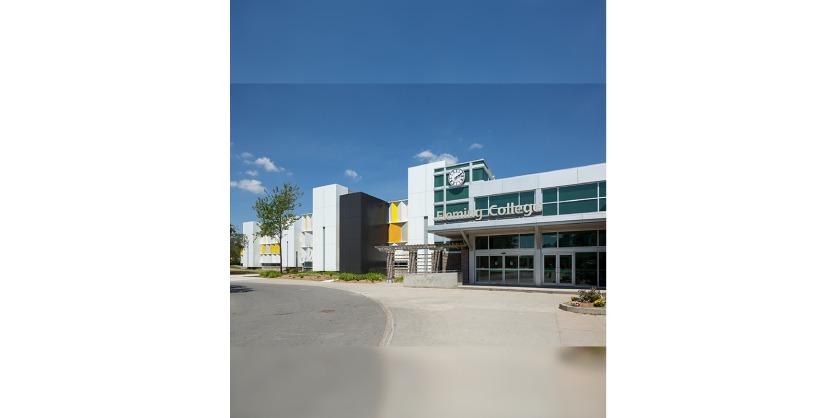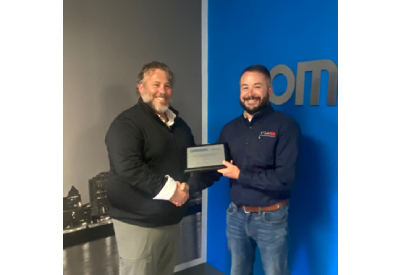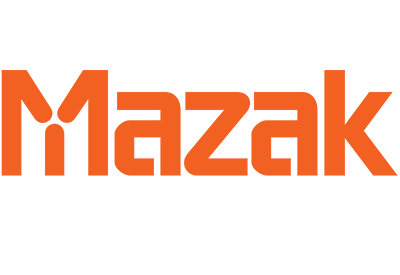Artificial Intelligence and Aquaculture: Fleming College to Assist Independent Robotics with Innovative Canada’s Ocean Supercluster Projects
March 8, 2024

Fleming College is pleased to announce its involvement in two funded research projects recently announced by Canada’s Ocean Supercluster
These projects mark a significant step forward in advancing sustainable aquaculture practices and environmental stewardship using artificial intelligence.
Researchers from Fleming College’s Centre for Innovative Aquaculture Production (CIAP) and the Centre for Advancement in Mechatronics and Industrial Internet of Things (CAMIIT) will join research teams from projects led by Montreal-based Independent Robotics. Both projects interweave robotics, advanced underwater technologies, data analytics, and remote monitoring systems with commercial aquaculture net pen production.
The Autonomous Robotics for Aquaculture Project aims to create a complete autonomous system that will provide the aquaculture industry with valuable data pertaining to fish health, quantity, inventory, size, infrastructure, and water quality. The $2M project was awarded $1M from Canada’s Ocean Supercluster, the remaining funding to come from other project partners.
The second project, named the Visual Assessment of Aquaculture Pens Project, was awarded $150,000 from Canada’s Ocean Supercluster. In this project, the research team will develop visual assessment capabilities for Independent Robotics’ Aqua2 autonomous underwater vehicle, enabling autonomous observation, monitoring, and assessment of aquaculture net pens and the fish within.
“Fleming College is known for its leadership in applied research and our strong commitment to environmental sustainability,” remarked Maureen Adamson, President of Fleming College. “We are thrilled that the synergies that exist between our CIAP and CAMIIT research centres can help Independent Robotics with their projects designed to develop cutting-edge technologies for the aquaculture industry.”
“The team at Independent Robotics is proud and excited to be part of such a worthwhile project that is so critical to the aquaculture industry,” said Pedro Gregorio, CEO of Independent Robotics in an earlier statement. “Aquaculture is a billion-dollar business in Canada that plays a vital role in offering a sustainable complement to the traditional fishing industry. Some 70% of all finfish consumed come from the aquaculture sector. We thank Canada’s Ocean Supercluster for selecting us and we look forward to working alongside our project partners to help make aquaculture more sustainable and productive”.
Work on both projects is currently underway.
Independent Robotics designs and builds easy-to-operate autonomous surface and underwater vehicles that execute complex tasks in challenging environments. Our solutions leverage advances in artificial intelligence, machine learning, neural networks and visual processing. By pushing the boundaries of AI and robotics, we deliver cost-effective solutions that broaden the range of human capability.
Canada’s Ocean Supercluster accelerates the development and commercialization of made-in-Canada ocean solutions in energy transition, food security, future of transport, and climate change while also growing more companies, creating more jobs, and attracting ocean talent. As Canada’s national ocean cluster, the OSC is a convenor of members, partners, and networks and a catalyst for transformative growth that helps build the robust ecosystem needed to help realize Ambition 2035 – a 5X growth potential in ocean in Canada by 2035. To date, the OSC has approved more than 85 projects with a total value of more than $400 million which will deliver more than 200 new made-in-Canada ocean products, processes, and services to sell to the world. For more information visit oceansupercluster.ca
Fleming College’s Centre for Advancement in Mechatronics and Industrial Internet of Things (CAMIIT) is a multipurpose research centre for industrial research and design projects. Located at Fleming’s Sutherland Campus in Peterborough, CAMIIT is a leading-edge hub of applied research and technology development services for the private sector, government and non-governmental agencies, and universities. CAMIIT’s areas of specialization and expertise include: system design, Industrial Internet of Things, Industry 4.0, mechatronics product development, advanced manufacturing, and 3D printing. CAMIIT is focused on contributing to innovation in Canada by creating successful research partnerships with businesses, organizations, and entrepreneurs.
Fleming College’s Centre for Innovative Aquaculture Production (CIAP) provides a state-of-the-art applied research facility for industry-focused research related to aquaculture. CIAP’s areas of specialization and expertise include: innovative feed ingredients, aquaculture facility design and optimization, novel technologies, rearing of unique species, impacts of fish culture practices, and performance improvements. CIAP is committed to helping shape and grow the country’s aquaculture industry through innovation, sustainability, and knowledge transfer.
About Fleming College
Fleming College respectfully acknowledges that we are situated on Michi Saagiig Anishinaabeg lands and territory. Located in the heart of Central Ontario, Fleming College has campus locations in Peterborough, Lindsay, Cobourg and Haliburton. Named for famous Canadian inventor and engineer Sir Sandford Fleming, the college features more than 100 full-time programs in Arts and Heritage, Business, Environmental and Natural Resource Sciences, General Arts and Sciences, Health and Wellness, Justice and Community Development, Skilled Trades and Technology, and Continuing Education. Fleming College has more than 6,800 full-time and 10,000 part-time students, and 80,000 alumni.
Related Story
Canada’s Ocean Supercluster Announces $10.5m Hydroaware Project Expanding Hydropower and Safeguard Habitats Using AI-Powered Fish Monitoring
Canada’s Ocean Supercluster (OSC) has announced the HydroAware Project to expand hydropower and safeguard habitats using AI-powered fish monitoring. This project will help the advancement of fish monitoring technology by enhancing reliable fish tracking in harsh marine environments and increasing the availability of fish tracking insights from remote locations.




